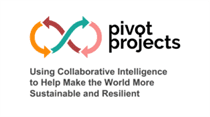Sustainable supply chains
There is an abundance of research that shows people’s awareness of the link between their health and wellbeing – and that of the environment – is increasing. As our life source, oceans play a critical role – they regulate the climate and give us oxygen. They are a major food source and food security provider for over three billion people who depend on marine and coastal biodiversity for their daily nutrition and livelihood. As a natural carbon sink, they are a vital buffer against climate change, absorbing around 30 per cent of all the additional fossil carbon ever emitted by human activities and 90 per cent of the excess heat – with major consequences for the oceans’ chemistry and ecosystems.
It is clear that humanity depends on healthy oceans, just as we as individuals depend on a healthy body to survive. Governments recognised the importance of oceans for our collective future at the UN Summit on Sustainable Development with the adoption of a dedicated Sustainable Development Goal (SDG) for oceans (Goal 14). This sets specific targets for oceans’ protection, including on pollution, overfishing and conservation.
Meeting these ocean targets is more urgent than ever. Decades of over-exploitation and abuse caused by short-term corporate interests and governments’ inaction have pushed the oceans to the brink of collapse.
With two thirds of the ocean surface designated ‘a global commons’ – i.e. not belonging to any one country but to all mankind – the absence of an international legal framework to designate and effectively manage high-seas sanctuaries means only a shocking one per cent is under protection today.
Major change is needed to the way in which industry and governments treat the oceans. To restore the seas, and increase their resilience and productivity, we must commit to sustainable supply chain transport solutions.
It is clear that advocacy, education, collaboration and regulation are required to drive practical, safe and sustainable solutions to keep our oceans – and us – healthy.

Programme
Talking points will include:
- The relationship between people and oceans
- Ocean engineering for the future
- A roadmap for sustainable supply
- Making decarbonisation a reality
Ambassador Peter Thomson – Secretary-General’s Special Envoy for the Ocean, United Nations
Ruth Boumphrey – Director, Strategic Programmes, Lloyd’s Register Foundation
Quentin Henneaux – Lead, Global Freight Compliance Baxter
Dr Richard Hixson – Consultant in Critical Care and Co-Founder NHS Ocean
Katharine Palmer – Shipping Lead, Climate Champion
news
Mainstream Invests £5 million to Build Scottish Wind Turbine Plant



Mainstream Signs Option for Scottish Offshore Wind Farm Infrastructure



